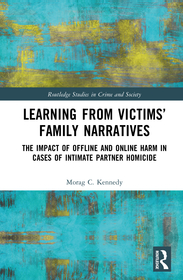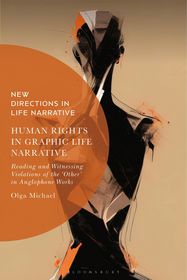
Authoring Female Identities in Spanish and Latin American Art and Media
- Publisher's listprice EUR 149.79
-
62 125 Ft (59 167 Ft + 5% VAT)
The price is estimated because at the time of ordering we do not know what conversion rates will apply to HUF / product currency when the book arrives. In case HUF is weaker, the price increases slightly, in case HUF is stronger, the price goes lower slightly.
- Discount 20% (cc. 12 425 Ft off)
- Discounted price 49 700 Ft (47 334 Ft + 5% VAT)
Subcribe now and take benefit of a favourable price.
Subscribe
62 125 Ft

Availability
printed on demand
Why don't you give exact delivery time?
Delivery time is estimated on our previous experiences. We give estimations only, because we order from outside Hungary, and the delivery time mainly depends on how quickly the publisher supplies the book. Faster or slower deliveries both happen, but we do our best to supply as quickly as possible.
Product details:
- Publisher Springer Nature Switzerland
- Date of Publication 22 March 2025
- Number of Volumes 1 pieces, Book
- ISBN 9783031814433
- Binding Hardback
- No. of pages408 pages
- Size 210x148 mm
- Language English
- Illustrations XX, 408 p. 53 illus., 52 illus. in color. Illustrations, black & white 647
Categories
Long description:
This edited volume places the work of Spanish and Latin American female artists in, between, and across genres, media, spaces, identities, disciplines, and worlds. Its aim is to curate a series of interconnected studies on women artists across diverse media, and to position and redefine our understanding of female authorship. This is a timely intervention both in and beyond the fields of Hispanic Studies and Film and Cultural Studies, given the continued lack of visibility and persistent inequities experienced by individuals who identify as women.
MoreTable of Contents:
Chapter 1: Editors’ Introduction.- Part: one.- Chapter 2: Collective Labour of Care: Building Feminist Infrastructures in the Post-Dictatorial Spanish State.- Chapter 3: Feminist Dissidence in Manuela Ballester Vilaseca’s Poetry.- Chapter 4: Maruja Mallo and Concha Méndez: Creative Friendship, Female Embodiment, and Ludic Space.- Chapter 5: Fósiles of the Feminine: Clara Janés, Rosa Biadiu, and the Vestiges of Time.- Chapter 6: In Deep with Ouka Leele.- Chapter 7: Symbolic Reparations, Buchonas, and Gore Capitalism in Mayra Martell’s Gore (2017) and Chulada (2018).- Chapter 8: Gender and Violence in Lorena Wolffer’s Work.- Creative Intervention.- Chapter 9: Reflective Visual Mediations: Women Artists, Researchers, and their Positionings.- Part Two.- Chapter 10: ‘A todo el mundo le gustaría que su madre fuera una estrella de rock ...’ [‘Everyone would like their mother to be a rockstar ...’]: Music, Mourning, and the (absent) Maternal Voice in Todos están muertos.- Chapter 11: A Domestic Revolution: Feminist Awakening in the Home in Rosario Castellanos’s ‘Lección de cocina’ (1971) and Antonella Sudasassi’s El despertar de las hormigas (2019).- Chapter 12: Retracing Ripples: Water, Idleness, and Guilt in Lucrecia Martel’s Salta Trilogy.- Chapter 13: Crafting New Roads to and Spaces for Womanhood in Leticia Dolera’s Requisitos para ser una persona normal (2015) and Vida perfecta (2019-21).- Chapter 14: Alternative TV Voices: Jane the Virgin (CW, 2014-19).- Chapter 15: Panels of the Self: Self-referentiality, Memory, and Speaking Out on Traumatic Abuse in Sole Otero’s Poncho Fue (2017).- Final Remarks.- Chapter 16: Epilogue.
More





